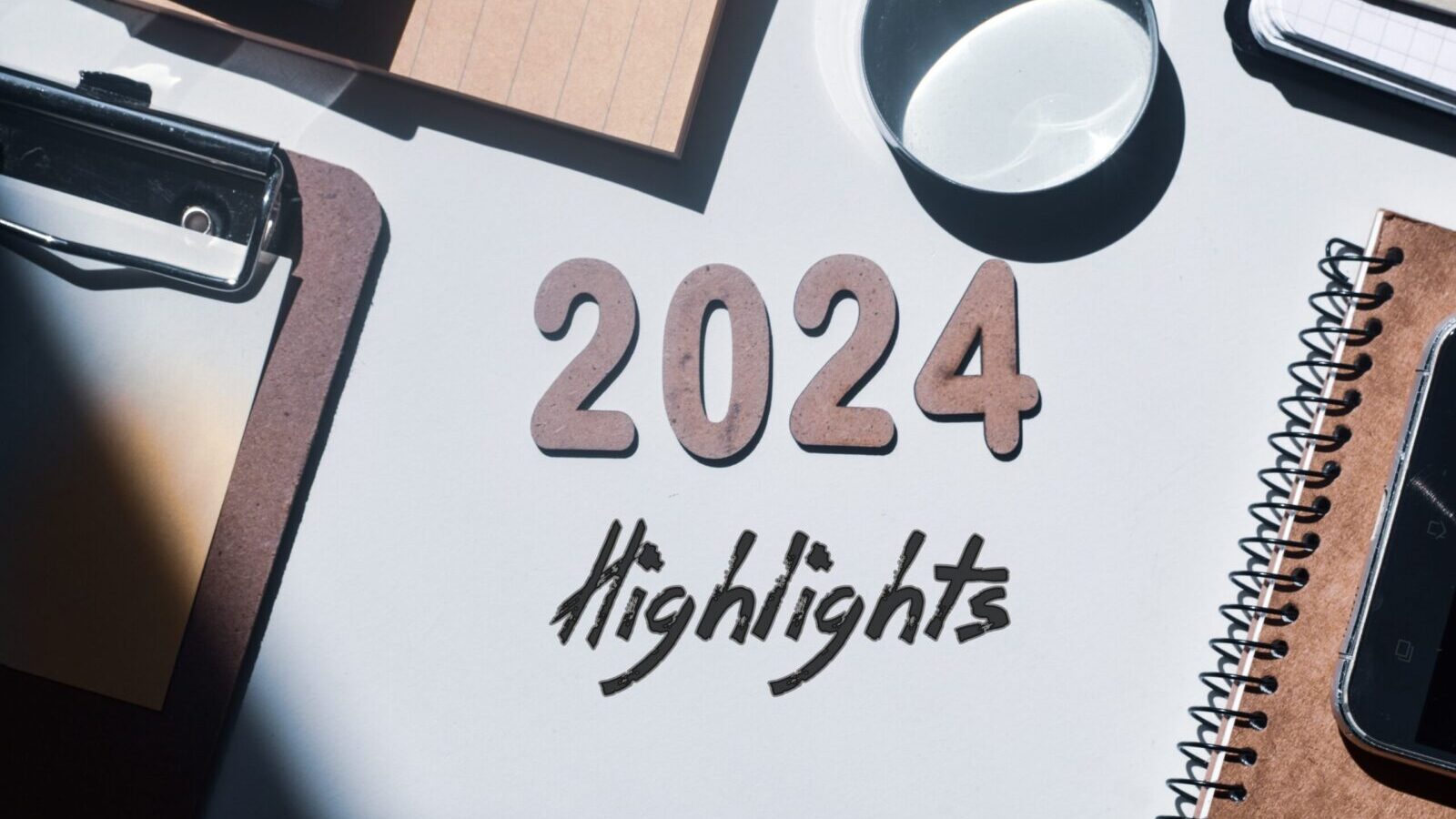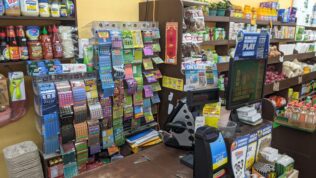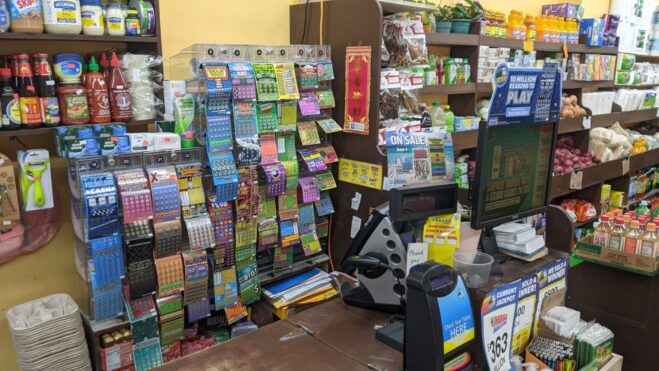Year In Review: The Most Important Lottery Biz Developments Of 2024
From price hikes to iLottery to partnerships to scandals, there was hardly a dull moment this year
4 min

If you haven’t noticed, it’s that time of year when we look back on what has happened over the prior 12 months of our lives.
For all of us, there’s some good, some bad, and some ugly, some big stories and some small ones, but all of them have a place.
That’s the way it works in the lottery business too. Here are our picks for the most important developments around the lottery industry in 2024.
The big wait is over
In a wild year for lotteries and the lottery business, you won’t get any argument from us if you call the long-anticipated overhaul of Mega Millions the most consequential lottery story of 2024. As a multi-state lottery game played in 45 states plus the District of Columbia and the U.S. Virgin Islands, it serves, along with Powerball, its only competition, as a de facto national lottery, touching millions and millions of players.
The changes, which are scheduled to go into effect in April 2025, are not insignificant: The price increases from $2 to $5 per ticket, the second time in the game’s history that the price has increased; a formula adjustment that promises better odds of winning (from 1-in-302.6 million to 1-in-278.4 million); and larger payouts via Megaplier, a prize multiplier.
Lottery industry stories don’t come much bigger than this, folks.
You win some, you lose some
The battle between the forces that want to make online lottery available to everyone and those who oppose it based on the fear it will cripple small businesses and the industry itself continued unabated in 2024, with both sides claiming some victories.
The big winner was Massachusetts, whose Lottery Director Mark William Bracken has been lobbying for online lottery sales for years and finally succeeded when Gov. Maura Healey signed the legislature’s $58 million budget bill in July. The bill included a provision for the legalization of online lottery ticket sales.
West Virginia too joined the ranks of states that allow online lottery games in 2024 when it released its “iPlay” platform, enabling players to buy tickets and play electronic games on their smartphones or tablets.
In the other corner, Texas state Sen. Bob Hall introduced a bill in December that, if passed, would effectively ban online lottery sales in the state because the practice allegedly violates the intent of Texas gambling laws, which prohibit using a telephone to buy lottery tickets.
New Jersey was all set to roll out online lottery when pushback from retailers who rely on in-person purchases forced an about-face early in the year. Lawmakers drew up legislation that is currently being discussed in Trenton.
At the other end of the country, California went out of its way to remind everyone that online courier services like Jackpocket and Jackpot.com are illegal there and that any winning tickets bought using a courier service would not be honored.
Chaos is a friend of mine
You’d be hard pressed to find an industry as dynamic as the lottery business is, and there are no signs of it slowing down anytime soon. A by-product of this kind of chaotic growth is frequent mergers, acquisitions, and big-time deals, the type that occurred throughout 2024.
To name a few: 7-Eleven, the world’s largest convenience store chain, joined forces with online lottery courier Jackpot.com. Sportsbook and fantasy sports company DraftKings spent $750 million buying courier Jackpocket. Jackpocket partnered with sports and pop culture website Barstool Sports.
Want more? Australian-based online gaming giant Virtual Gaming Worlds bought into British lottery company 99Dynamics, which runs Jackpot.com. And Walmart, the largest company in the world by revenue, is (somewhat secretly) planning a major foray into the lottery business in the coming year.
Busted …
Lotteries in the U.S. had their fair share of scandals and mini-scandals in 2024, perhaps most notably one involving accusations that the Texas Lottery agency conspired to help a single lottery player, or a group of players, win a $95 million Lotto Texas jackpot in 2023.
Officials noted an abnormally high number of tickets that were sold in the last days before the drawing, which the agency facilitated by agreeing to fulfill last-minute requests for additional lottery terminals from retailers associated with the party who was buying up tickets in record numbers. The retailers included an outlet owned by Lottery.com, which had been inactive for months and faced scrutiny for questionable business practices.
On a smaller scale, the Connecticut Lottery commission had its own problems in 2024 when it was forced to pay a $13,000 “settlement fee” to the state’s Department of Consumer Protection in October after a software glitch resulted in numerous errors that affected outcomes for both losing and winning lottery tickets bought between May and August of 2023.
Minnesota fared no better following an audit by the Office of the Legislative Auditor, whose findings were released in a comprehensive report in November. The audit found that the lottery failed to properly vet retailers; that retailers continue selling lottery tickets after their contracts have expired; and that the lottery was out of compliance with state regulations involving lost or stolen scratch-off tickets.
Lastly, court documents released in October described Massachusetts Treasurer Deborah Goldberg as having a “pattern and practice” of asking a former lottery official to delete from his phone text messages the two had exchanged over the years. Though the subject messages were alleged to involve the firing of a government official, text messages between public officials are considered public record.
A reason to believe
The year saw some positive news throughout the industry. The North Carolina Education Lottery raised a record $1.09 billion for public schools, the second consecutive year it brought in more than $1 billion, easily surpassing its goal of $931 million.
According to a statement released by the North Carolina General Assembly, the biggest chunk of funding is earmarked for construction projects, meaning new schools and repairs to existing infrastructure.
Running a close second, the Virginia Lottery donated a record $934 million to K-12 public education in the state, generated by $5.5 billion in sales, and, due largely to low administrative costs, a record $4.2 billion was returned to players in prizes and winnings. That means players received $0.77 for every dollar they spent on lottery games.
Speaking of breaking records, New Hampshire smashed several longstanding records at the end of the 2024 fiscal year. The commission reported sales were up approximately 5% year-over-year to a record $631 million, and revenue was up 7% to $200.7 million, another high.
Nebraska got into the mix as well, hitting the $1 billion mark in funds transferred back to the state since the lottery’s inception in September 1993. Officials said much of the money has gone to projects focused on preserving and improving Nebraska’s natural resources, to education (including financial aid for college students), to The Nebraska State Fair, and to other agricultural causes.
Finally, our friends to the north recorded a record of their own. The Lotto Max reached an unprecedented CAD 80 million (USD $58.8 million) for a drawing in September, breaking the record of CAD 75 million set the prior week. Two players split the 80 million later that month after buying winning tickets in Quebec and Ontario.









